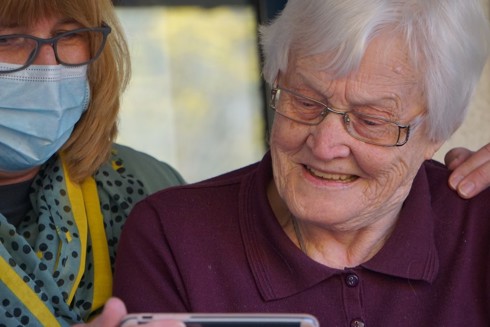The two or three contracts that you must sign to enter residential aged care
24/01/2024

If you or a loved one has accepted a place in an aged care home, there will be some paperwork to sign – so what are the contracts, and what do they cover?
Once you or your family acting on your behalf have been offered a place, the aged care home will provide two or three contracts that cover all the details of your stay.
These might be given to you as separate documents or combined into one. The documents are:
Resident agreement
This document is a legal agreement detailing all the care and support services that the aged care home will provide. It will include how the aged care home plans to meet your needs in the future, too, if things happen to change.
In addition, it will explain how much your care will cost, broken down into the basic daily and means tested care fees (if applicable). The agreement will include all the details about how your fees are calculated and also outline fees for any additional services that the aged care home provides.
If you’ve agreed to pay for some additional services, you will be provided with a regular itemised account.
The agreement will also explain your rights and responsibilities as a resident, and the responsibilities your aged care home has to you. It will also outline the process for dealing with concerns and complaints.
It will outline how the aged care home will continue to support you as your needs change, known as “ageing in place”. It will also include details around when you can be asked to leave, how to exit the agreement, and how to move to another aged care home.
Accommodation agreement
This will detail what room you are taking and how much you have agreed to pay, as well as other accommodation conditions, if relevant. Whether you have to pay towards your accommodation or not, everyone entering an aged care home needs to agree to a room price in writing. This cannot be higher than the published price for the room, and it can be negotiated to a lower price.
Your means assessment determines if you are eligible for Government assistance with your accommodation costs. If you are not eligible, you will pay the agreed room price, but there is room to negotiate directly with your aged care home. Services Australia can advise which applies to you.
Payment options
You have options for how you pay for the accommodation. They include a daily accommodation payment, a refundable lump sum amount, or a combination of both. The requirements for refunding the lump-sum deposit – known as the Refundable Accommodation Deposit (RAD) – will also be outlined. You have 28 days to decide how you would like to structure your payments and enter into the accommodation agreement.
Extra services agreement
This is only given when the aged care home has extra service status, and you are entering an extra service room, allowing them to provide upgraded hotel-type services. Extra service status can apply to a whole aged care home, or just particular rooms.
If you are entering an extra service status room, you must have an extra service agreement that includes:
- the extra service fee
- details of the higher standard of accommodation, meals, and services.
- The extra service agreement may form part of the resident agreement.
Entering into an agreement
When you’re happy with the terms of the documents, you can ‘enter into an agreement.’ This is usually done by signing the agreement(s) to declare that you understand and accept them.
There is no time limit to sign the resident agreement, but it is in your best interest to agree to the arrangements that cover your rights and responsibilities as soon as possible.














